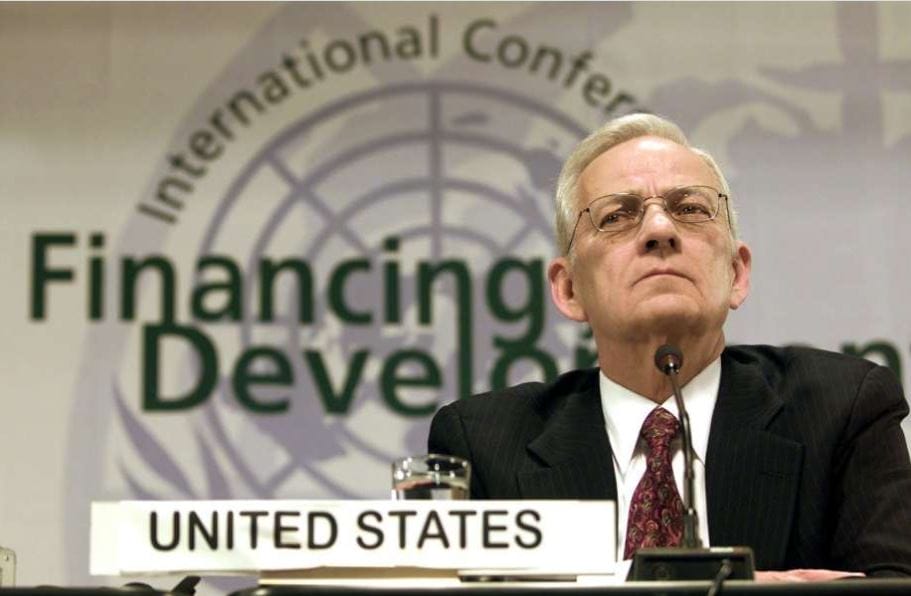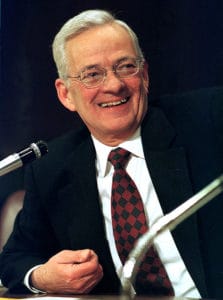Passings: Paul O’Neill (1935-2020), Former U.S. Treasury Secretary

The university community joins dignitaries and business leaders from around the world in mourning the passing of former U.S. Secretary of the Treasury, Paul O’Neill, who died this month after battling lung cancer for several years. He was 84.
The former CEO of aluminum giant Alcoa, O’Neill studied economics at the university in the 1960s before moving on to a distinguished leadership career that also included serving as chair of the RAND Corporation.
For many O’Neill lived a life that embodied the highest of Peter Drucker’s management ideals: While economic performance is an organization’s first duty, strengthening society is its ultimate responsibility.
As Alcoa CEO, O’Neill famously made worker safety the company’s most important performance metric. Investors and competitors initially thought it an odd approach—until they watched Alcoa turn out year after year of economic success.
Never one to be cowed by the party line, O’Neill was a deficit hawk who served as the 72nd U.S. Treasury Secretary under George W. Bush and who also talked with urgency about the need to counter global warming and ensure universal healthcare.

O’Neill left the Bush Administration in 2002 after making public his disagreement about U.S. entry into the Iraq War as well as his opposition to tax policy, in particular, a second round of tax cuts that he feared would worsen the country’s deficits.
Claremont Graduate University lauded his distinguished career in 2011 by granting O’Neill an honorary doctor of humane letters degree.
In 2013, the Drucker Institute at CGU interviewed O’Neill (he was a longtime supporter of the institute) about his passionate work to reform the U.S. medical system.
“I believed for a long time that we as a society should say…that if you’re fortunate enough to be in this country that you will have financial access to the medical care that you need,” O’Neill said. “I think we should state that as an explicit value of American society.”
O’Neill’s final cause was in this way no different than the many others he championed throughout his life: He matched a relentless focus on results with an overriding concern for the health of his country and fellow citizens.
Last year, the longtime Pittsburgh resident was honored by the Ford Foundation for his commitment and dedication as a public servant. The foundation awarded him the Gerald R. Ford Medal for Distinguished Public Service.
O’Neill is survived by his wife, four children, 12 grandchildren, and 15 great-grandchildren.